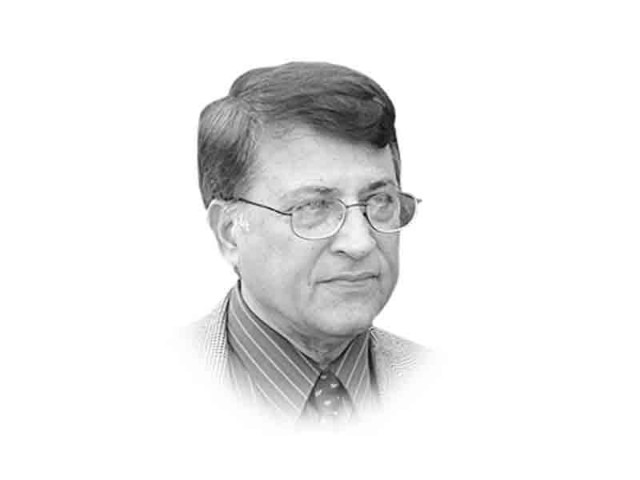Why they killed Arif Shahid
Arif Shahid’s son, has been threatened with dire consequences if he attempts to place the blame on any agency.

On the evening of May 13, an assassin stepped out of a car that had just driven to the doorstep of Sardar Arif Shahid’s residence in Rawalpindi.
He waited for the 62-year-old Kashmiri leader to arrive. After pumping four bullets into him, the killer calmly got back into the car and was whisked away.
A major Kashmiri nationalist leader, chairman of the All Parties National Alliance (APNA) and president of the Jammu Kashmir National Liberation Conference (JKNLC), had just been silenced. Mysteriously, a press that thrives on crime reporting was mum the next day. The murder still remains unreported.
My first meeting with Arif Shahid was just a few days after the October 8, 2005 earthquake. It had nothing to do with the politics of Kashmir. A team of teachers and students from Quaid-e-Azam University, using money raised by the Eqbal Ahmad Foundation, were engaged in a relief operation that was to last many months.
There were already 90,000 dead, and thousands of houses had been reduced to rubble. Winter was around the corner and countless more people would die unless they could be protected from the snow and bitter cold nights to come.

For our team, Arif Shahid was a gift from heaven because of his close familiarity with the villages around the earthquake devastated towns of Rawalakot, Bagh and Muzzafarabad. The number of shelterless families in dire need was staggering.
But how could strangers like us separate the needy from the scores of hucksters swarming around? We had enough wherewithal to construct 2,000 corrugated tin-roof shelters — a drop in the bucket, perhaps, but still significant if apportioned properly.
With perspicacity and determination, Arif Shahid set about the task of separating the needy from the greedy and patiently walked us around the worst-hit areas.
Gruff only in appearance, he was warm, caring and friendly. We noted with some amusement that, although Islamabad was just a few tens of miles away, he would invariably introduce us to groups of survivors as honourable guests from Pakistan!
Who killed him? As in the case of Saleem Shahzad, fingers will inevitably be pointed but there will be no closure. At the same time, the mystery is not impossible to fathom.

Family members, and others close to Arif Shahid, say that he had long been under observation and books that he had authored were seized.
As one who had successfully brought together fractious groups from both sides of Kashmir, he was considered especially effective as a mediator. In 2009, he had therefore been placed on the Exit Control List (ECL) and his passport had been confiscated. It was later returned after he won a court battle.
Speakers at a small protest meeting that I attended in Rawalpindi a few days after the murder said that he had received threats that, for now, he had decided to ignore.
Significantly, this appears to be the first instance where a major Kashmiri nationalist leader was actually eliminated. Arousing suspicion is that there has been no condemnation of the murder by Pakistani political and military leaders, nor a demand that an investigation be launched. Instead, Amer Shahid, Arif Shahid’s son, has been threatened with dire consequences if he attempts to place the blame on any agency. He has been instructed to attribute the murder to a family feud.
Hounded by both the Indian and Pakistani establishments, the position of Kashmiri nationalists is a difficult one on both sides of the divide because they espouse the belief that Kashmir must seek equal distance from both Pakistani and Indian control. While outsiders sometimes dismiss their dream as quixotic, they have gained growing traction in the last decade.
While India’s record on human rights in Kashmir is abysmal and rightly worthy of criticism, Pakistan has squandered the moral advantage it once had in international fora. By supporting jihadists and targeting nationalists, it has alienated world public opinion — and the Kashmiris. As far as the rest of the world is concerned, Kashmir has turned into a dead cause. For this, Pakistan’s military and civil establishment can have no one but themselves to blame.
The writer retired as professor of physics from Quaid-e-Azam University, Islamabad
Published in The Express Tribune, May 30th, 2013.



















COMMENTS
Comments are moderated and generally will be posted if they are on-topic and not abusive.
For more information, please see our Comments FAQ